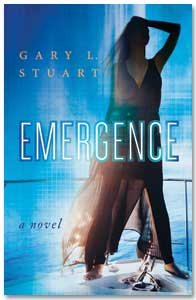Other blog postings on this site posited ethical issues for writing about politics writ large, the 2020 Presidential Election, and other nits and nats of political writing. This post is about the ethics of writing about political parties, writ small. The infamous Ambrose Bierce, in his Enlarged Devil’s Dictionary, defined politician for the ages: “A politician is an eel in the fundamental mud upon which the superstructure of organized society is reared.” He also said politics is, “a strife of interests masquerading as a contest of principles. The conduct of public affairs for private advantage.”[1] This posting is not intended satire, but because we’re talking about political parties, readers may speculate as they please.
In theory, a political party is an organized group of people with the same ideology, or who otherwise have the same political positions, and who field candidates for elections, to get them elected and implement the party’s agenda. In the 2020 Presidential Election, this definition applies to only one of the several parties on the ballot—the Republican Party. Will Rogers famously said he didn’t belong to an organized political party—he was a democrat.[2]
In practice, a political party is a group-share. They share tidbits of ideology, might have similar political leanings, and try to field candidates for elections to get them in office where they might advance their own agendas—with, before, or maybe after the election. They are never of one mind. Some members of the party are in it for personal advantage, others for a single issue, and still others for reasons that are best kept secret. The fracturing of political parties partly explains why almost one-third of Americans claim independence from either mainstream political party.
George Washington, in his 1796 farewell address, warned against “the baneful effects of the spirit of party” as inciting American citizens “with ill-founded jealousies.”[3] He accurately predicted the rise of independent voters. In 21st Century US, neither the Republicans nor the Democrats can win without snaring a large swath of independents.
With these fundamental notions in place, it’s time to examine whether political parties have ethical norms, and if so, how can writers comply with those norms when writing about the party espousing them.
Political parties no longer stand for issues or positions past the last national election. They stand in 2020 on positions articulated in current terms of need, importance and chance of success in 2020. They revise their platforms every four years but mostly ignore them during an election. These realities can be seen most clearly in how they see themselves organizationally from one election to another.
So, are their ethical norms to follow when writing about political parties, as opposed to politics in general? The old standby in other ethical settings—truth—is mostly an abstract concept within political parties. They don’t much bother with abstract propositions. Another standby—fact—gets more attention at the party level, but it’s not an ethical issue. Something is factual or not. Usually, the “not” means that it’s merely an opinion, not a fact. That’s not helpful. In nonpolitical settings—integrity—is an ethical norm. But in the political party setting, it has mellowed down to merely doing what you say you will do. Integrity in political terms could mean you successfully suppressed the voters of the opposing party and thereby increased your chances of winning. Morality in political terms is not an ethical value; it’s a talking point, as in the “moral majority” ad campaign in past political campaigns proved.
There is at least one institutional approach to national political parties, as viewed from an ethical perspective. The 1976 Ethics and Public Policy Center is dedicated to applying the Judeo-Christian moral tradition to critical issues of public policy. “From the Cold War to the war on terrorism, from disputes over the role of religion in public life to battles over the nature of the family, EPPC and its scholars have consistently sought to defend and promote our nation’s founding principles—respect for the inherent dignity of the human person, individual freedom and responsibility, justice, the rule of law, and limited government.”[4] Its essence is tied to the Judeo-Christian moral tradition. That leaves out other moral traditions and most non-religious approaches to ethical positions and dilemmas. It’s preference for limited government ties it to the GOP.
When I find a straightforward ethics-based assessment of political parties, not tied to either major party, I’ll post it. Meanwhile, it’s mostly about winners and losers.
 I am an author and a part-time lawyer with a focus on ethics and professional discipline. I teach creative writing and ethics to law students at Arizona State University. Read my bio.
I am an author and a part-time lawyer with a focus on ethics and professional discipline. I teach creative writing and ethics to law students at Arizona State University. Read my bio.
If you have an important story you want told, you can commission me to write it for you. Learn how.
[1] Ambrose Brice wrote his magnificent satire “The Devils Dictionary” between 1906 and 1913. The quotes above are from an enlarged version of the original, compiled and edited by Ernest J. Hopkins. Doubleday & Company, Inc., Garden City, New York, 1977 at 221-222.
[2] https://www.brainyquote.com/quotes/will_rogers_122697
[3] https://www.ushistory.org/gov/5a.asp
[4] https://eppc.org/about/






 I am an author and a part-time lawyer with a focus on ethics and professional discipline. I teach creative writing and ethics to law students at Arizona State University.
I am an author and a part-time lawyer with a focus on ethics and professional discipline. I teach creative writing and ethics to law students at Arizona State University.  My latest novel is Emergence, the sequel to Let’s Disappear.
My latest novel is Emergence, the sequel to Let’s Disappear.  If you have an important story you want told, you can commission me to write it for you.
If you have an important story you want told, you can commission me to write it for you.